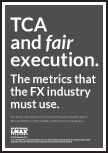Follow-up/What I’m Reading: Back in late March, I had a post on questions about Is epidemic Covid-19 much worse in New York and New Jersey than everywhere else? If so, why?
. This is follow-up to that post based on a new paper that’s related to one of the questions I was wondering about: Could New York and New Jersey be more severely affected than the rest of the U.S. because of population differences? Well, maybe. … You might want to look not only at densities but at other features of how those populations go about and live their lives; for example, New York is unusual within the United States not only in having a very dense population but also in having extremely high levels of transit and subway usage within the inner city, unusually low rates of car ownership per household and per capita, etc.
The follow-up here is that Jeffrey Harris, at MIT, thinks that the effect in New York City may be due to transmissions of infection within the subway system. Here’s an NBER Working Paper draft of a paper by which argues that The Subways Seeded the Massive Coronavirus Epidemic in New York City
. It’s very new (written in mid-April 2020), and it’s an NBER Working Paper off-print, so it has not been peer reviewed. The paper is an observational study, which is based on observed correlations among subway ridership, subway line locations within New York City, and hotspots for detected coronavirus cases within New York City. Well, maybe. Anyway, here’s the abstract:
ABSTRACT
New York City’s multitentacled subway system was a major disseminator – if not the principal transmission vehicle – of coronavirus infection during the initial takeoff of the massive epidemic that became evident throughout the city during March 2020. The near shutoff of subway ridership in Manhattan – down by over 90 percent at the end of March – correlates strongly with the substantial increase in the doubling time of new cases in this borough. Maps of subway station turnstile entries, superimposed upon zipcode-level maps of reported coronavirus incidence, are strongly consistent with subway-facilitated disease propagation. Local train lines appear to have a higher propensity to transmit infection than express lines. Reciprocal seeding of infection appears to be the best explanation for the emergence of a single hotspot in Midtown West in Manhattan. Bus hubs may have served as secondary transmission routes out to the periphery of the city.
Jeffrey E. Harris
Department of Economics, E52-422
MIT
Shared Article from NBER Working Paper Series
THE SUBWAYS SEEDED THE MASSIVE CORONAVIRUS EPIDEMIC IN NEWYORK C…
New York City’s multitentacled subway system was a major disseminator – if not the principal transmission vehicle – of coronavirus…
Jeffrey E. Harris @ web.archive.org
To be fair, the paper does not make much attempt to test whether subway lines explain disease transmission more than any other lines of pedestrian or vehicle traffic through the city, but for robustness he does also draw on some indications, drawn from press reports, that the prevalence of detected Covid-19 infections among MTA subway workers may be extremely, disproportionately high.[1]
If Harris is correct, it would help to explain the situation within the greater New York City MTA network, although of course it leaves to be explained the situation in the rest of New York State and New Jersey. The sections on unintended consequences (discussed as ironies
of policy responses, e.g. on pp. 15ff) and on possible suggestions for, so to speak, removing the pump handle within the subway system as restrictions ease and ridership begins to tick back up, are both interesting and suggestive.
(Reference to the paper thanks to Chris Sciabarra (2020/04/23).)
- [1]Harris claims in this section that
It is hard to imagine any plausible explanation for these workers’ losses except that their place of work was the principal source of their coronavirus infections
and thatthe high prevalence of detected Covid-19 among MTA workers
turns out to be the clincher that transportsus from correlation to causation
; I think it’s a really interesting and suggestive paper, but these claims are surely far too strong. You don’t have to be too imaginative to dream that MTA workers might be more likely to get tested than other people in New York City; they might be more likely to get infected simply because they have been continuing to work in public places, not because they’ve been working in the subway in particular, etc. You would need to compare MTA workers not to zipcodes but to other groups of essential-business workers who have been continuing to work in public places over the last month, and to gather some kind of information about any differences in rates of testing, etc.)↩




